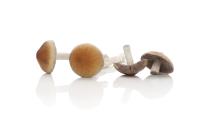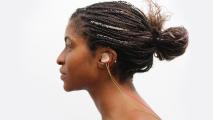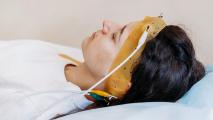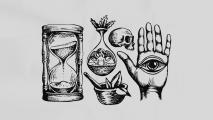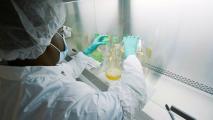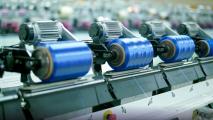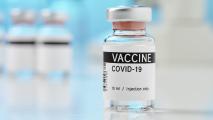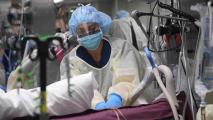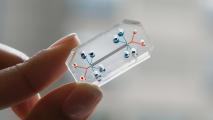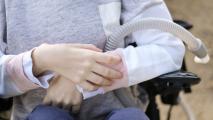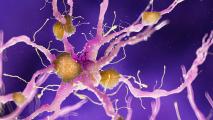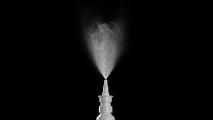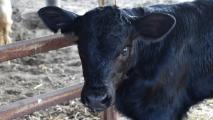
Biotech
Human history has been all but defined by death and disease, plague and pandemic. Advancements in 20th century medicine changed all of that. Now advancements in 21st century medicine promise to go even further. Could we bring about an end to disease? Reverse aging? Give hearing to the deaf and sight to the blind? The answer may be yes. And soon.
More
App brings psychedelic-assisted therapy into your home
The Field Trip app aims to help people get some of the benefits of psychedelic-assisted therapy outside the confines of a clinic.
Is it safe to fly right now? MIT expert weighs in.
Is it safe to fly right now? An MIT professor calculated the risk of air travel during the pandemic in two different flight scenarios.
One ayahuasca experience could have lasting effects on the brain
Researchers believe just one ayahuasca experience may be enough to have a lasting effect on the brain.
Nerve-stimulating earbud could accelerate language learning
A non-invasive vagus nerve stimulation device can make language learning easier — and it might help with other types of learning, too.
Researchers create blueprint for the “love hormone” receptor
The shape of the love hormone receptor is finally revealed in a 3D map created by researchers at the University of Zurich.
Hack your dreams to improve your waking life
These scientists want to hack your dreams to improve your creativity and memory.
Medieval medicine yields modern weapons
Deadly antibiotic-resistant superbugs require new weapons. Ancient and medieval medicine may point us to where to find them.
Designer antibodies could help treat and prevent COVID-19
A pair of new trials will test the ability of designer antibodies to not only treat COVID-19, but also potentially prevent coronavirus infections.
Afghan farmers use solar panels to grow food — and opium
Farmers in Afghanistan are taking advantage of cheap solar panels to power the water pumps they use to irrigate crops for food and opium production.
How thread became critical in a pandemic
Tech giants have teamed up to help innovate the PPE supply chain and lessen the risk of future shortages, starting with the world’s leading thread supplier.
Updated coronavirus vaccine list: Where we stand today
A regularly updated coronavirus vaccine list highlighting the candidates closest to receiving approval from regulators.
Immune signals may predict severe cases of COVID-19
Severe cases of COVID-19 involve a runaway immune response called a cytokine storm. Immune system “signatures” may sharpen doctor’s forecasts.
Human-like "organ chips" could eliminate animal studies
To rapidly test for COVID-19 treatments without animal studies, researchers make a model human body out of “organ chips.”
Gene therapy gives hope for duchenne muscular dystrophy
A boy received the first gene therapy trial for Duchenne muscular dystrophy and is able to walk once again.
Coronavirus treatment update: Where we stand today
Our latest coronavirus treatment update highlights the options that appear to work, ones that might, and ones that failed to live up to their promise.
New blood test for Alzheimer’s is as accurate as brain scans
A new blood test for Alzheimer’s is as accurate as the costly, invasive, and time-consuming methods currently used to detect the disease.
Scientists test DIY coronavirus vaccine on themselves
Scientists have developed a DIY coronavirus vaccine they think could provide protection against COVID-19 — and they’re testing it on themselves.
COVID-19 tests that are fast, cheap, and less accurate may be key
Fast, cheap, DIY COVID-19 tests could dramatically increase the amount of testing done. And some experts think the trade off in accuracy would be worth it.
A new way to promote bone healing, inspired by LEGO blocks
Drawing inspiration from LEGO blocks, researchers have created a new type of scaffold to facilitate better bone healing and soft tissue repair.
This genetically modified cow could transform beef production
Cosmo the bull calf has an extra SRY gene, which makes him more likely to sire male cows — and also makes him a strong candidate for use as a GMO food.
Get inspired with the most innovative stories shaping the world around us.













